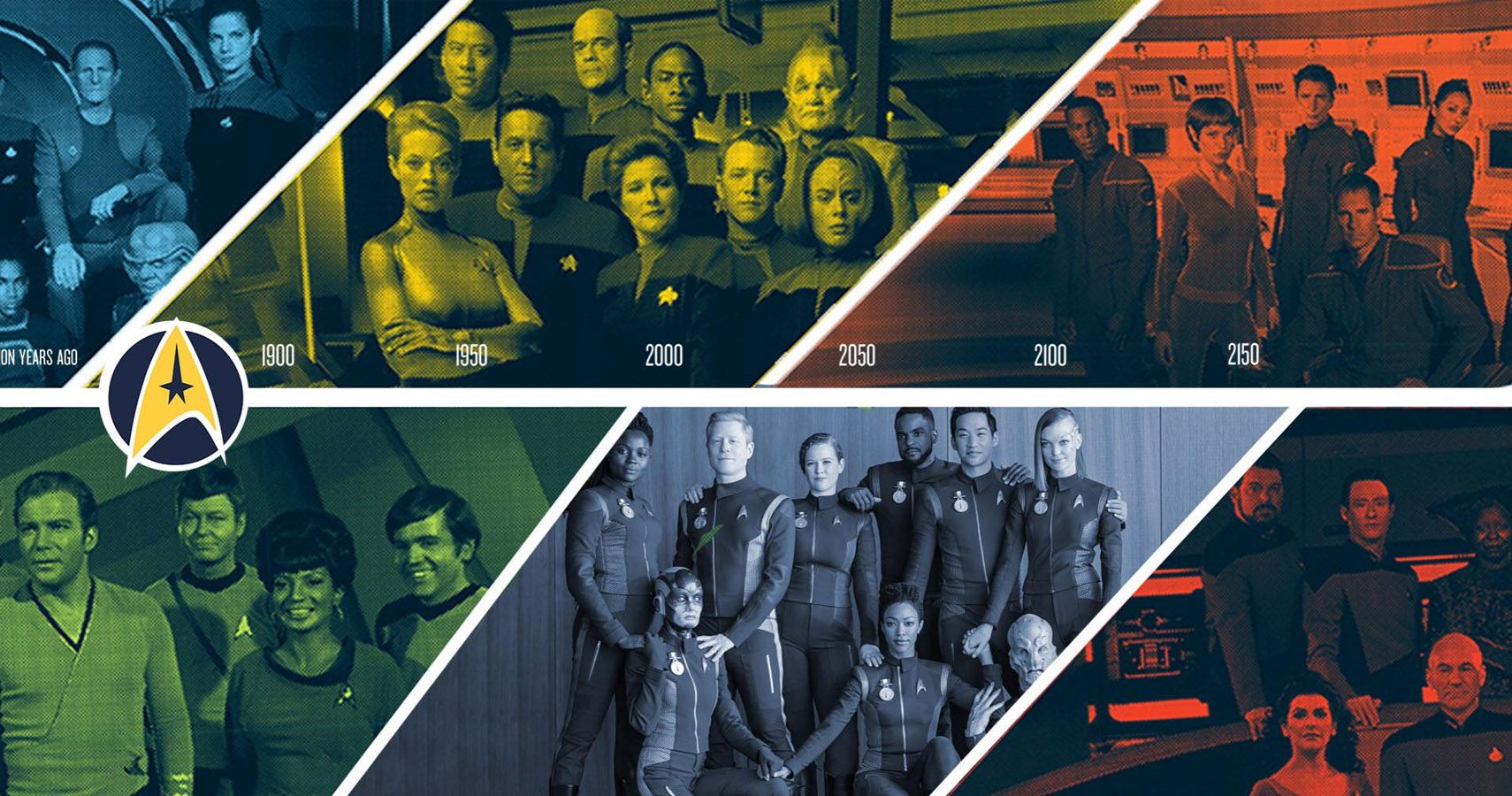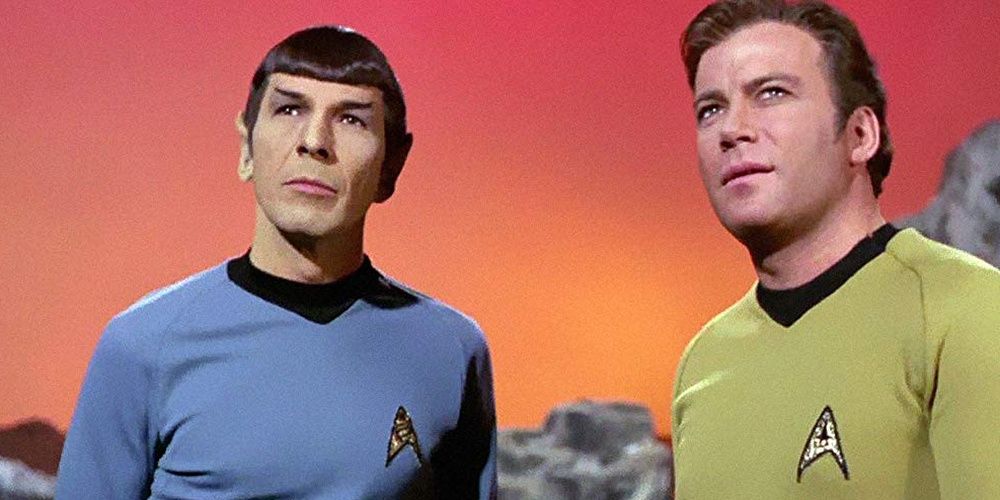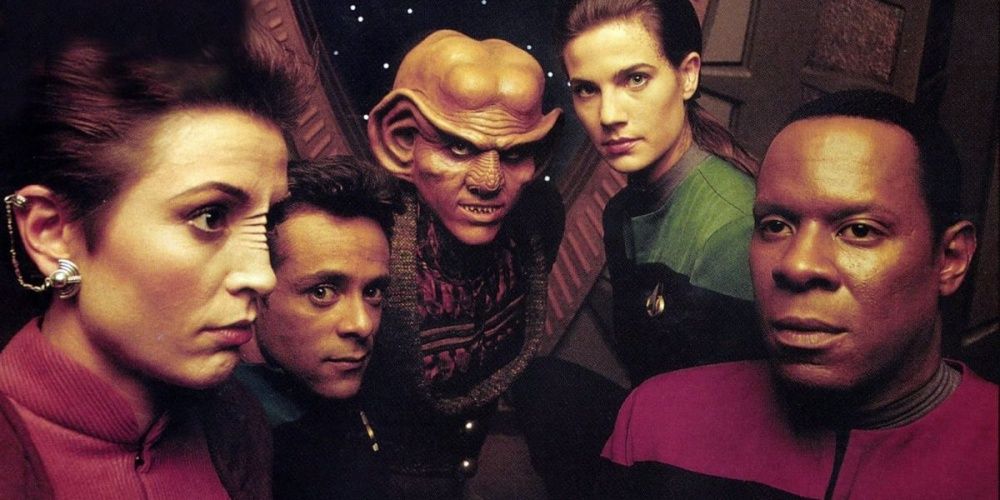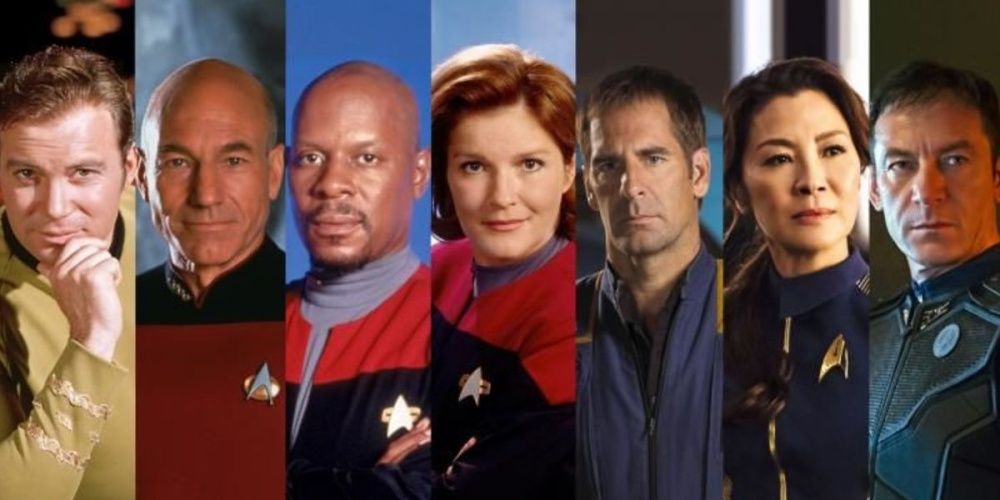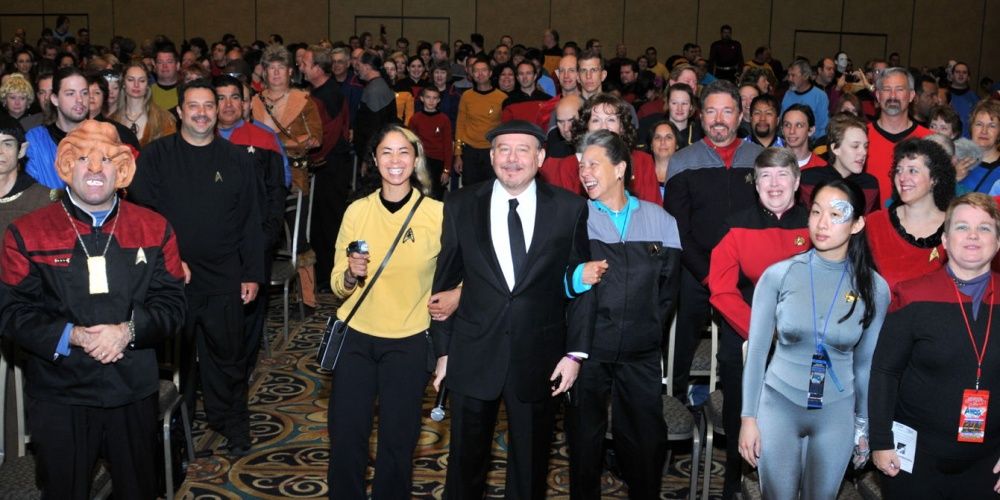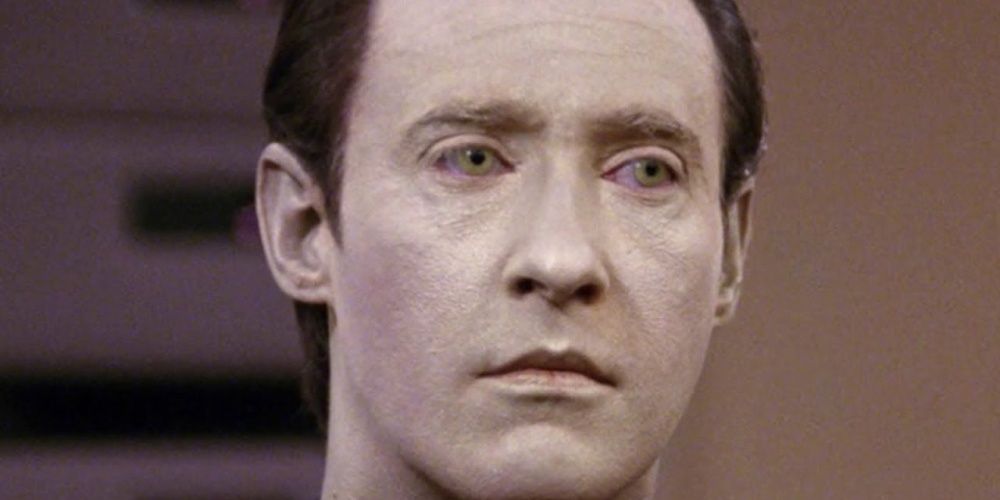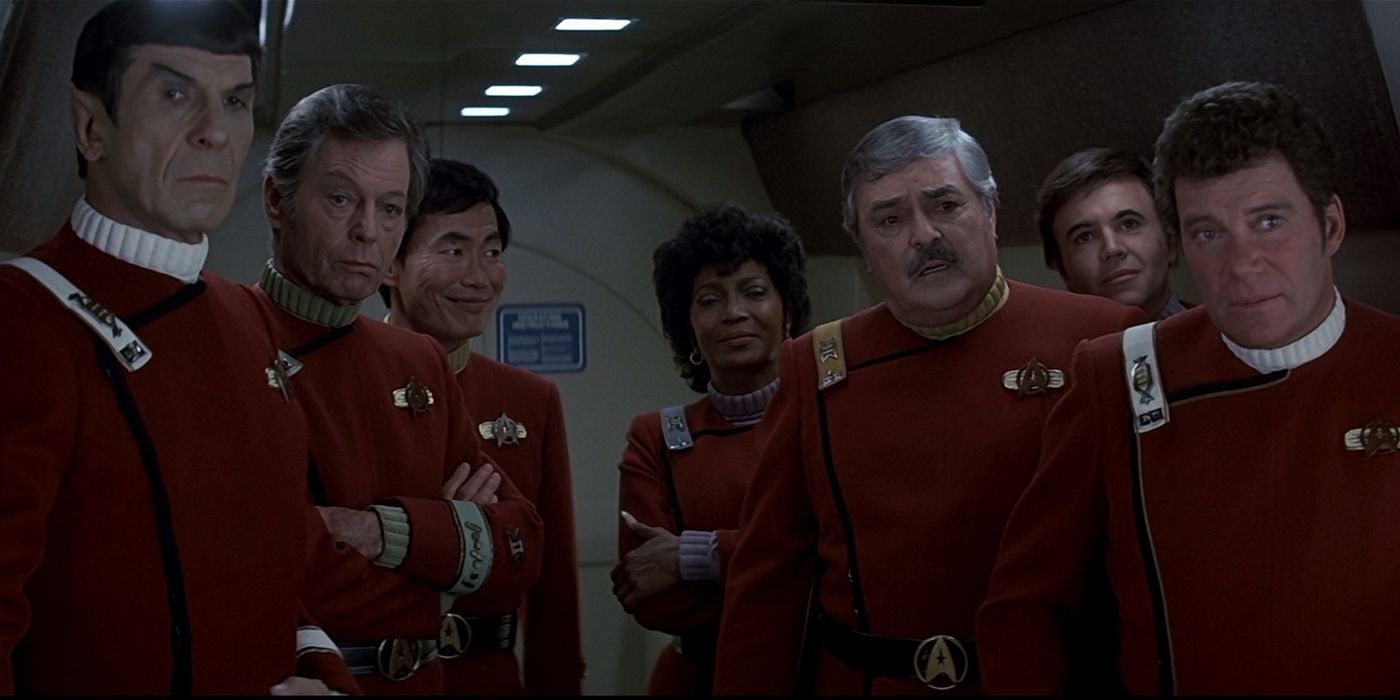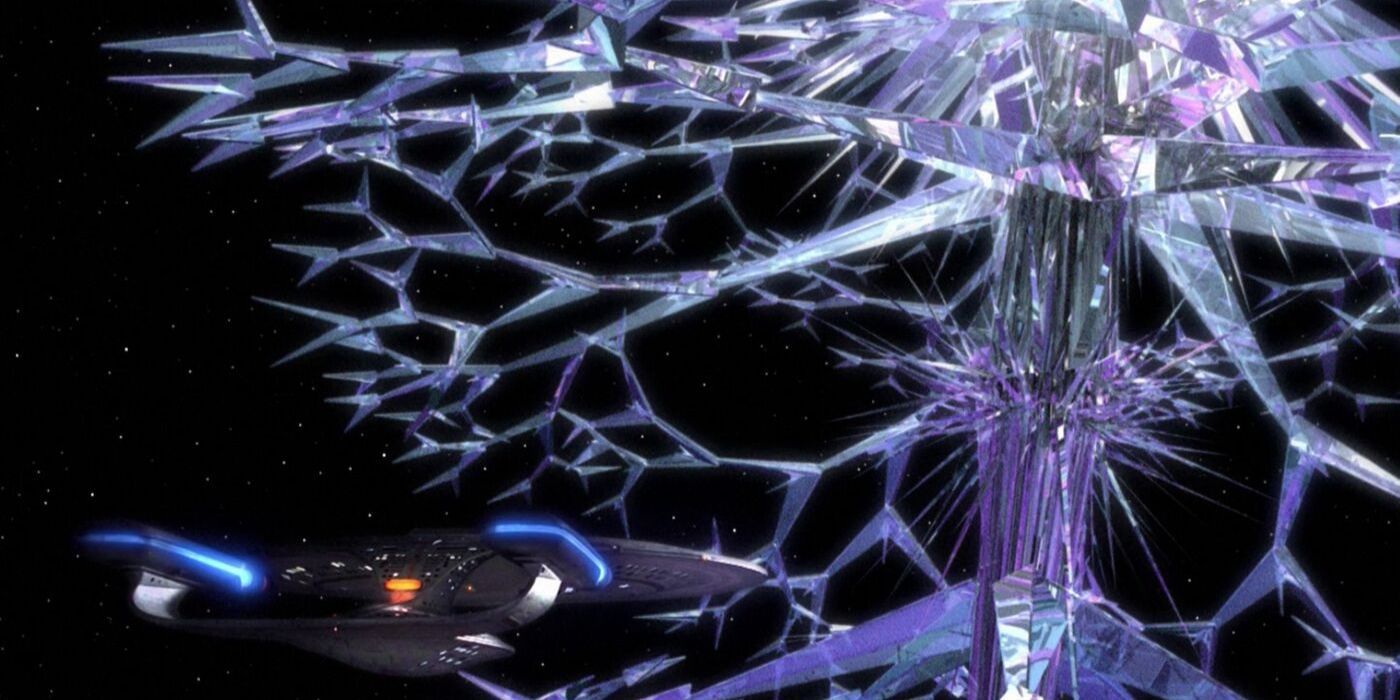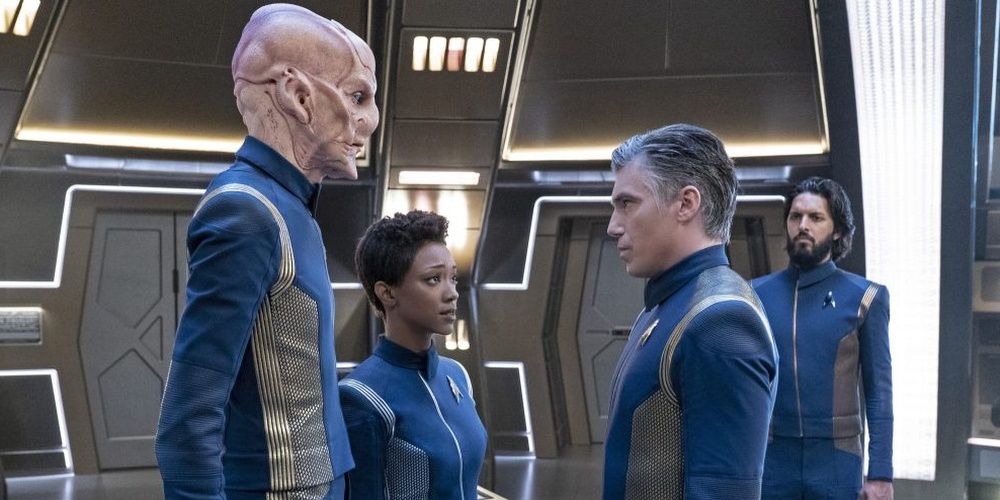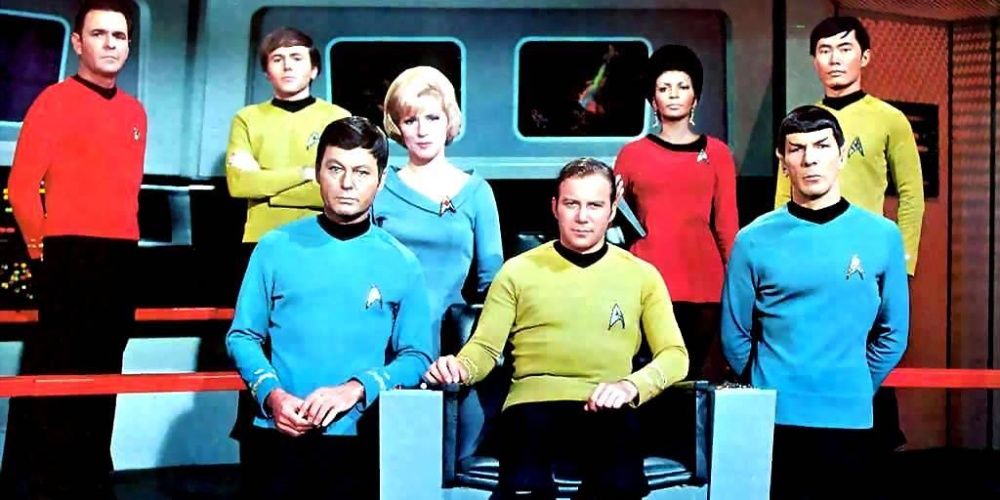Star Trek is a franchise that has existed since the '60s, and in that time the universe has done nothing but expand, making it one of the most prominent science-fiction franchises in the world.
Ahead of their time with progressive themes and attitudes, Star Trek proved just how wholesome a show about people exploring space could be. If you never got into Star Trek, don't hesitate in giving this incredible universe a chance, you just might find it's not too late to indulge and maybe even become a Trekky yourself.
Old Star Trek Still Holds Up
A lot of Star Trek's special effects may not look the best by today's standards, especially in the original series from the '60s, or even the '80s Next Generation, but that doesn't mean these series don't hold up to their original entertainment standards, in fact, it's quite the opposite.
Even the earliest iterations of Star Trek manage to look and feel sleek, logical and thrilling this many years later. Whether it's through edge-of-your-seat writing, incredible dialogue, or its simplistic yet practical set design, the Star Trek aesthetic is still able to maintain a somewhat realistic glow, even with outdated CGI and what some may call 'corny' action sequences. If anything, Star Trek, just proves just how ahead of it's time an old show can be.
It's not a Huge Commitment
Becoming a Star Trek fan after all this time may seem like a bit of a challenge. You may feel like it's too late, or that there's no way you could possibly catch up with all the franchise has done over the last half-decade. The truth is, you can really digest Trek at your own pace, whether you want to watch just an episode a week, or binge-watch an entire season every few days.
Most of the Trek iterations are somewhat stand-alone, with episodes often being comprised of their own compact stories, but building upon characters' personalities as the show goes on. On the other hand, you could try something like Deep Space Nine, an ongoing story that will you make you want to consume as much as you can, as quick as you can.
There Are Many Versions
Since its debut in 1966, there have certainly been more than just a few shows and movies in the Star Trek universe. Spanning across fifty plus years, Star Trek has had eight iterations in show form, and thirteen movies, as well as countless novels, video games, and comic books.
If you're looking to start the show in chronological order, you can certainly begin with Star Trek: Enterprise and work your way through the invigorating timeline, but there is no lack of information keeping you from watching the show in any order you please. If you find that one version of the Star Trek universe doesn't quite satisfy you, there are plenty of other options with a variety of differences to try out.
The Acting
You may know Star Trek for some of its cheesier one-liners from the classic series, or maybe you know it for its calming and informative sounding narrative, but within each facet of the show, there is always a constant amongst its actors: conviction.
Actors in Star Trek do more than guide the viewer to find relatability and leadership in the cast, but they carry the show through their own pure belief. Fully absorbed by every bleak or mysterious situation, cast members completely pull you in, making you really feel like "one of the crew". The acting performances themselves may have there own ups, downs, and nuances throughout all fifty years of the show, but it's an overall largely positive experience.
The Fans
If there was ever a large group of varied fans to share your thoughts with, 'Trekkies' would certainly be one of the most infamous, and for good reason. When a successful franchise spans over fifty years with solid material released on a consistent basis, what else can you expect?
From conventions to cosplay, from the video game Star Trek: Online to Star Trek board games and fan films, the world of 'Trekkies' is as big of a geek rabbit hole as you could ever find, and there will always be plenty of others to share and communicate your feelings on Star Trek with. Fans continue to create and explore the world through their own eyes, giving a somewhat unique perspective on it from every fan who gets into it.
It's Logical Sci-Fi
Sci-fi is a genre notorious for breaking rules, not being realistic, and taking you to a 'far out' place where the laws of science don't apply. Amidst the fictitious chaos, sci-fi needs to be grounded. Either in relatability, realism, or logic. Of all science fiction mediums, there may not be a single more popular show to follow the rule of 'logic' quite like Star Trek.
The decisions made are based upon critical thinking and problem-solving, with diplomatic and peaceful options always being the logical first choices. Even far out solutions and victories to problems and villains seem to make great sense in the vast and organized fiction world.
It's Suitable for Everyone
Maintaining a rating that is both suitable for everyone, while simultaneously interesting to all age groups, is quite a feat. Over its many years, Star Trek has done a lot more than simply maintain an appropriate tone for all. It has formed a strong stance in open-mindedness, acting as a wholesome and morally informative lesson in humanity, even under its sometimes dark tone.
As one of the most progressive shows of all time, Star Trek has always strived to create a world of peace, understanding, and a willingness to accept others, providing life lessons that everyone should and can get behind, from little kids, all the way to your grandparents.
It Can Get Dark Too
Star Trek may be universally friendly, but that doesn't mean it has to hold all of its punches. Being able to maintain a non-graphic or explicit rating while exploring dark and thrilling subject matter is actually one of its greatest strengths.
With episodes bordering on the psychological thriller side of genres, the show knows how to play with your mind when possible, and it also knows how to play with your emotions. With episodes featuring themes of war, mental addiction, love, and losing loved ones, it isn't afraid to get a little bleak for the sake of telling a good story.
It's Still Going
Just like many other huge franchises, Star Trek has continued to stay strong over the many years of its existence, and there's no sign of it stopping anytime soon. Star Trek: Discovery has continued expanding upon the lore and universe of the show and the new Star Trek: Short Treks gives a bit more of a classic feel, with episodes containing stand-alone stories that are written to be well rounded and tidy, easily digested in a single sitting.
Moving forward, there are multiple movies planned, and the upcoming Picard aims to revisit the beloved Next Generation character in the future, and in the process, connect the new Discovery timeline with the esteemed and highly acclaimed '80s series.
It Ages Well
Star Trek has aged like a fine wine some might say, and it continues attempting new ideas and styles with each new take on the massive and ever-growing universe. The old Star Trek holds it's own in terms of theme and style, and shows like Next Generation and Deep Space Nine are considered some of the best in all of sci-fi to this day.
The influence from older Star Trek can be seen virtually everywhere, with the shows soothing and mysterious feeling becoming iconic, yet the show manages to move forward in trying new ideas and takes such as the JJ Abrams movies or the new Discovery show. Whether you like the new efforts or not, it would seem that Star Trek will continue to move forward try new things for years to come.

